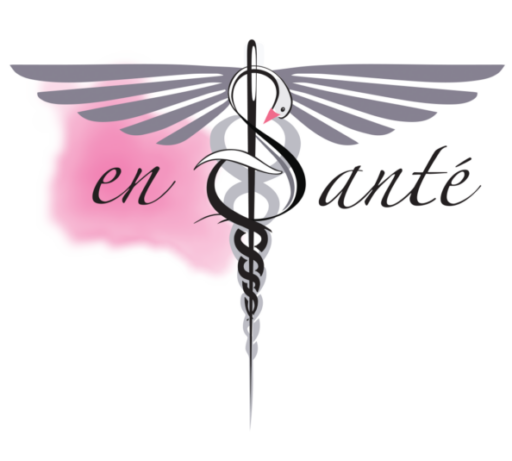Menopause
What is Menopause?
Menopause is a normal part of aging that signifies the end of a woman’s reproductive years. It is characterized by the cessation of ovarian function, leading to the end of menstrual cycles. This process is primarily driven by a decline in the hormones estrogen and progesterone.
Stages of Menopause
The process can be divided into three stages: perimenopause, menopause, and post-menopause.
- Perimenopause: This is the transition period leading up to menopause. It can begin several years before menopause, typically in the 40s, but can start in the 30s. During this time, the ovaries gradually produce less estrogen. Perimenopause lasts until menopause, the point when the ovaries stop releasing eggs. Common symptoms during this stage include irregular periods, hot flashes, night sweats, and mood swings.
- Menopause: This stage is defined as the point when a woman has not had a menstrual period for 12 consecutive months. The ovaries have stopped releasing eggs, and the production of estrogen and progesterone has significantly decreased. Symptoms can be more pronounced during this stage and may include hot flashes, vaginal dryness, and sleep disturbances.
- Postmenopause: This stage follows menopause and lasts for the rest of a woman’s life. During postmenopause, menopausal symptoms may ease for many women, but the lower levels of estrogen increase the risk of certain health conditions, such as osteoporosis and cardiovascular disease.
Symptoms of Menopause
Symptoms affects each woman differently. Some may experience minimal discomfort, while others may have severe symptoms. The most common symptoms include:
Hot Flashes and Night Sweats
Hot flashes are sudden feelings of warmth, often over the face, neck, and chest, which can cause sweating and discomfort. Night sweats are hot flashes that occur during sleep and can disrupt rest.
Irregular Periods
During perimenopause, menstrual cycles become irregular. Periods may be shorter or longer, heavier or lighter, and the time between periods may change.
Vaginal dryness and discomfort
Lower estrogen levels can cause the vaginal tissues to become drier, thinner, and less elastic, leading to discomfort, itching, and pain during intercourse.
Mood Changes
Many women experience mood swings, irritability, and an increased risk of depression and anxiety during menopause.
Sleep Problems
Night sweats and hormonal changes can lead to sleep disturbances, including difficulty falling asleep, staying asleep, or waking up too early.
Decreased Libido
A decrease in sexual desire and arousal is common during menopause due to hormonal changes and vaginal dryness.
Other symptoms
Other possible symptoms include weight gain, thinning hair, dry skin, and loss of breast fullness.
Managing symptoms
There are various ways to manage menopause symptoms, ranging from lifestyle changes to medical treatments.
Lifestyle Changes
- Healthy Diet: Eating a balanced diet rich in fruits, vegetables, whole grains, and lean proteins can help manage weight and provide essential nutrients. Foods high in calcium and vitamin D are particularly important for bone health.
- Regular Exercise: Physical activity can help manage weight, improve mood, and strengthen bones and muscles. Aim for at least 150 minutes of moderate-intensity aerobic activity or 75 minutes of vigorous-intensity activity each week.
- Stress Management: Techniques such as yoga, meditation, deep breathing exercises, and mindfulness can help reduce stress and improve overall well-being.
- Adequate Sleep: Establishing a regular sleep routine, creating a comfortable sleep environment, and avoiding caffeine and electronic devices before bedtime can help improve sleep quality.
- Quit Smoking: Smoking can exacerbate menopausal symptoms and increase the risk of osteoporosis and cardiovascular disease. Quitting smoking can have immediate and long-term health benefits.
- Hormone Therapy: Hormone replacement therapy (HRT) can be effective in relieving many menopausal symptoms, including hot flashes and vaginal dryness. However, HRT is not suitable for everyone and may have risks, so it is important to discuss it with a healthcare provider.
- Non-Hormonal Medications: Certain antidepressants, blood pressure medications, and other drugs can help manage hot flashes and other symptoms.
- Vaginal Estrogen: Low-dose vaginal estrogen can help alleviate vaginal dryness and discomfort without significantly affecting overall estrogen levels.
- Bone Health Medications: Medications like bisphosphonates and selective estrogen receptor modulators (SERMs) can help prevent bone loss and reduce the risk of fractures.
Medical treatments
Some women find relief from menopausal symptoms through alternative therapies, such as:
- Herbal Supplements: Black cohosh, red clover, and soy products are commonly used to alleviate menopausal symptoms, though their effectiveness varies, and they may interact with other medications.
- Acupuncture: Some studies suggest that acupuncture can help reduce the frequency and severity of hot flashes.
- Bioidentical Hormones: These are hormones that are chemically identical to those the body produces. They are available in various forms, including creams, gels, and pills. However, their safety and efficacy are still under research.
When to seek help
While it is a natural transition, severe symptoms that interfere with daily life warrant medical attention. If you experience heavy bleeding, severe pain, or other concerning symptoms, it is essential to consult a healthcare provider.
Long term considerations
Postmenopausal women are at increased risk for several health conditions, including:
- Osteoporosis: Lower estrogen levels can lead to bone density loss, increasing the risk of fractures.
- Cardiovascular Disease: The decline in estrogen levels can negatively affect heart health, leading to an increased risk of heart disease.
- Urinary Incontinence: Weakened pelvic muscles and thinning of the urethral lining can lead to urinary incontinence.
- Weight Gain: Hormonal changes and a slower metabolism can contribute to weight gain during menopause.


